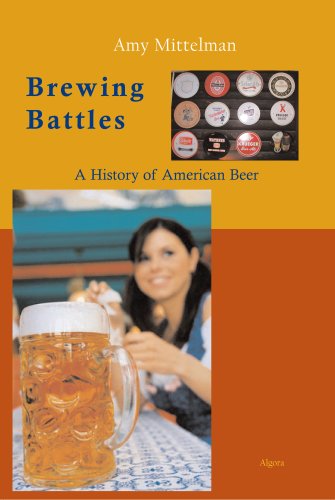

Most ebook files are in PDF format, so you can easily read them using various software such as Foxit Reader or directly on the Google Chrome browser.
Some ebook files are released by publishers in other formats such as .awz, .mobi, .epub, .fb2, etc. You may need to install specific software to read these formats on mobile/PC, such as Calibre.
Please read the tutorial at this link: https://ebookbell.com/faq
We offer FREE conversion to the popular formats you request; however, this may take some time. Therefore, right after payment, please email us, and we will try to provide the service as quickly as possible.
For some exceptional file formats or broken links (if any), please refrain from opening any disputes. Instead, email us first, and we will try to assist within a maximum of 6 hours.
EbookBell Team

4.3
18 reviewsBrewing Battles explores the struggle of German immigrant brewers to establish themselves in America, within the context of federal taxation and a growing temperance movement, their losing battle against Prohibition, their rebirth and transformation into a corporate oligarchy, and the determination of home and micro brewers to reassert craft as the "raison d etre" of brewing.
Brewing Battles looks at beer s cultural meaning from the vantage point of the brewers and their goals for market domination. Beer consumption changed over time, beginning with an alcoholic high in the early 19th century and ending with a neo-temperance low in the early 21st. The public places where people drank also changed from colonial ordinaries in peoples homes to the saloon and back to home via the disposable six pack. The book explores this story as brewers fought to create and control these changing patterns of consumption.
Drinking alcohol has remained a favored activity in American society and while beer is ubiquitous, our country harbors a persistent ambivalence about drinking. An examination of how the industry prevailed in a sometimes unreceptive environment exemplifies how business helps shape public opinion.
Brewing Battles reveals the complicated changes in the economic clout of the industry. Prior to the institution of the income tax in 1913 the liquor industry contributed over 50% of the federal government s internal revenue; 19th century temperance advocates portrayed the liquor industry as King Alcohol. Today their tax contribution is only 1% yet brewing actually has a much more pervasive influence, touching on almost every aspect of modern American life and contributing greatly to the GNP. Brewing Battles is this story.